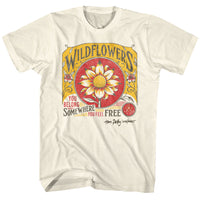11 rather innocent songs that were banned from the airwaves
At one time, Rosemary Clooney, the Everly Brothers and the Osmonds were too hot for radio.

Rosemary Clooney image: AP Photo / H.B. Littell; album covers: discogs.com
What we now consider golden oldies were once red hot and risqué numbers in their day. Romantic innuendo was sometimes enough to get a song banned from the radio. Even the Beach Boys' gorgeous love ode "God Only Knows" ruffled some feathers for being supposedly blasphemous. Heck, some tunes were kicked off the airwaves for merely being incomprehensible — because who knows what the singer might be saying.
These following classics would hardly raise an eyebrow in the 21st century, but all of them ran into trouble for their content. Even the instrumental.
1. "Will You Love Me Tomorrow" by the Shirelles

The first black girl-group to hit No. 1, the Shirelles saw their brilliant Gerry Goffin and Carole King tune banned on some radio stations for its very mild sexual content, as it merely suggests a one-night stand.
2. "The Pill" by Loretta Lynn

The Coal Miner's Daughter cut one of the all-time great country diss songs with this 1975 feminist anthem. "This old maternity dress I've got / Is goin' in the garbage," the narrator proclaims, liberated by birth control. Oral contraceptive pills had been on the market for 15 years, but the song stirred up controversy. "The Pill" just reached No. 5 on the country charts, which hardly seems worthy of the "just," but Lynn had a string of Top 3 hits earlier that decade.
3. "Crazy Horses" by the Osmonds

The Osmonds are not exactly known for hard rock and controversy, but the boys ran into trouble with this heavy number, and not because the song was a criticism of the polluting auto industry. "Crazy Horses" was banned in South Africa as "horse" is slang for heroin. America's breezy "Horse with No Name" faced similar bans in the States because of the connotation.
4. "Louie, Louie" by the Kingsmen

Can't figure out what he's singing? Don't sweat it. Nobody could. However, the FBI put some of their finest men on cracking the mystery of the "Louie, Louie" lyrics, playing the record at various speeds to decipher Jack Ely's mumbling. To be on the safe side, many banned the rockin' tune, including Indiana's governor.
Image: Stars on 7 Inch
5. "Mambo Italiano" by Rosemary Clooney

Now this hardly makes a lick of sense. The spiciest thing about "Mambo Italiano" is the mention of "enchilada," yet WABC in New York banned the song in 1954 for its supposedly suggestive lyrics.
6. "Rocky Mountain High" by John Denver

Everyone assumed Denver was singing about marijuana in 1972, because it was 1972, though he really just loved being in up the mountains. The natural splendor — not to mention the oxygen deprivation — really gets to you.
7. "Rumble" by Link Wray and the Wray-Men

Title alone was enough to ban this rockabilly staple, as "Rumble" was thought to incite violence and "juvenile delinquency." Good thing he didn't call it "Switchblade."
8. "Rum and Coca-Cola" by the Andrews Sister

Is there anything more wholesome and American than the Andrew Sisters? Regardless, this World War II–era gem was kept off some stations for mentioning alcohol and for boldly advertising a specific product. Similarly, a quarter century later, the Kinks' "Lola" would face a ban on the BBC for "product placement" and the mention of Coca-Cola.
9. "Burn my Candle" by Shirley Bassey

Yep, it's the BBC again, banning this debut single by the future Dame. "It's possible the pace may prove too hot," she crooned, and indeed it was. The line that undoubtedly drew heat was "There's S for Scotch / That's so direct / And for straight and simple sex." That's R-rated stuff for 1956.
10. "Wake Up Little Susie" by the Everly Brothers

Two kids innocently doze off and spend the night together. Uh oh. What will the parents think? Ironic that a song about people misunderstanding would get blacklisted, primarily in Boston, due to misunderstanding.
11. "Timothy" by the Buoys

Rupert Holmes, of "Escape (The Piña Colada Song)" fame, would willfully court controversy with this driving ditty about cannibalism. He wrote this song for the Buoys specifically hoping to be banned, figuring it would be good publicity. The surprisingly pleasant song about miners eating one of their own did crack the Top 40 — and indeed earn some bans. The label tried to make up a story that poor Timothy was a donkey, not a man, but Holmes stuck by his meaning.
































3 Comments


























